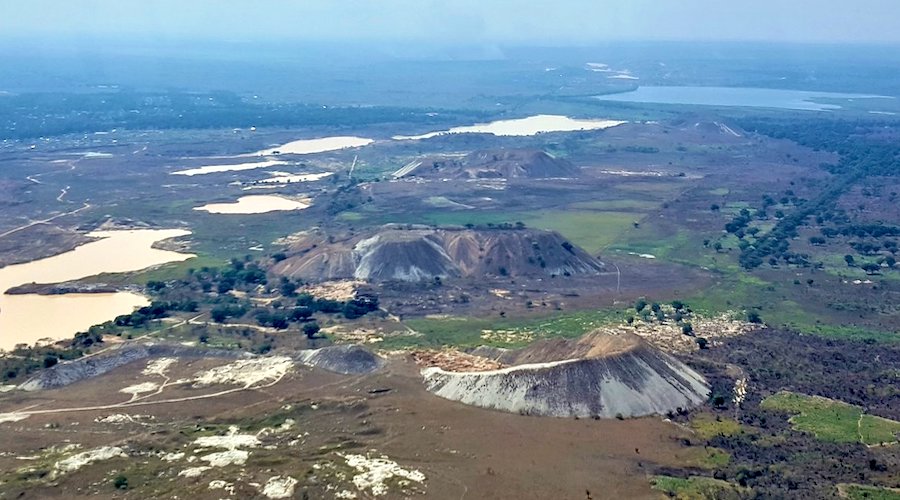Coking coal price crashes through $100
 Australian coking coal export prices fell nearly 4% reaching single digits for the first time since the data have been collected while quarterly contract prices reached six year lows.
Australian coking coal export prices fell nearly 4% reaching single digits for the first time since the data have been collected while quarterly contract prices reached six year lows.
According to data supplied by The SteelIndex spot Australian hard coking coal (FOB Australian east coast exports) price gave up 3.7% on Thursday to $99.50 a tonne, the lowest since January 2013.
The steelmaking raw material is down 16% so far this year. Spot premium coking coal used lost $4.60 or over 4% to $108.20 a tonne, also the lowest on record.
According to a new report by Bureau of Resources and Energy Economics, the Australian government’s official forecaster, few miners can operate profitably at these prices.
Today the soft market claimed another casualty with Glencore shutting down its Ravensworth underground mine in Australia.
Steel First quotes a trading source as saying even with prices falling rapidly, potential buyers in China, the world’s top importer, are unwilling to commit to seaborne purchases:
“People are just sitting on their hands, too scared to commit,” a trading source told Steel First. Buyers are in no rush to purchase material as they are waiting for clearer market cues, he added.
“It’s pretty risky to take positions these days, with downstream market weakness. We’re not buying unless there is firm demand from customers,” another trading source said.
Contract pricing for coking coal has slumped in tandem.
Anglo-American is reported to have settled second quarter contracts with Japan at $120 a tonne. At the same time Indian steel mills according to Bloomberg have inked supply deals at $125 a tonne down 13% from first quarter benchmarks and the lowest since 2008.
Quarterly benchmark coking coal traded as high as $330 a tonne in mid-2011 after bad weather took much of Australia’s supply off the market and stayed above $200 for two years between September 2010 and September 2012.
Quarterly benchmark prices is expected to continue to attract a premium of $5 – $10 above spot this year according to BREE forecasts.
Today’s met coal price also goes against a long-held rule of thumb in the industry – that met coal trades for more than iron ore.
Coking coal’s fresh weakness is in contrast the price of iron ore which has regained its footing to trade at $112.30 following an 8% drop in a single day two weeks ago that shook the market.
Only around 25%–30% of the seaborne metallurgical coal trade is sold on a spot basis, but its importance is growing rapidly driven in part by China’s increasing dominance as an importer.
China overtook Japan as the world’s top importer of coking coal in 2012 and this year is expected to buy 100 million tonnes, mainly from Australia. That compares to 55 million tonnes for Japan and 40 million tonnes for the EU.
While a slowdown in China’s steelmaking industry can take much of the blame, surging supply is another factor pushing prices down.
Top producer BMA, a joint venture between BHP Billiton and Japan’s Mitsubishi, increased production 22% in the second half of last year and expected to bring on line Caval Ridge (8 million tonnes a year) and Daunia (4.5 million tonnes).
Canada’s Teck Resources, Russia Mechel and Cokal in Indonesia all recently embarked on expansion programs, which are now coming on stream.
While many new project may now not see the light of day global supply of met coal is expected to continue to increase in 2014 as top producers seek to achieve lower production costs per tonne of coal sold.
Image of the Pasha Bulker coal carrier that ran aground near Newcastle Australia in 2007 from WikiMedia Commons.
More News
{{ commodity.name }}
{{ post.title }}
{{ post.date }}






3 Comments
Zulfikar
we from indonesia ready end sell, Coal, Coking Coal, Plywood, Food,
Zulfikar
who invest stations in Indonesia, if some interest please emai to me: [email protected]
Zulfikar
We have a very great news for buyer who is willing to buy our mine hard coking coals from “indonesia” South East Asia and JAPAN market for a regular supply,We have the best “FOB” price available in the market, No middle man direct from the mine call or text zul ( +62 81226423000 )
Skype: facebook:simbacangindonesia